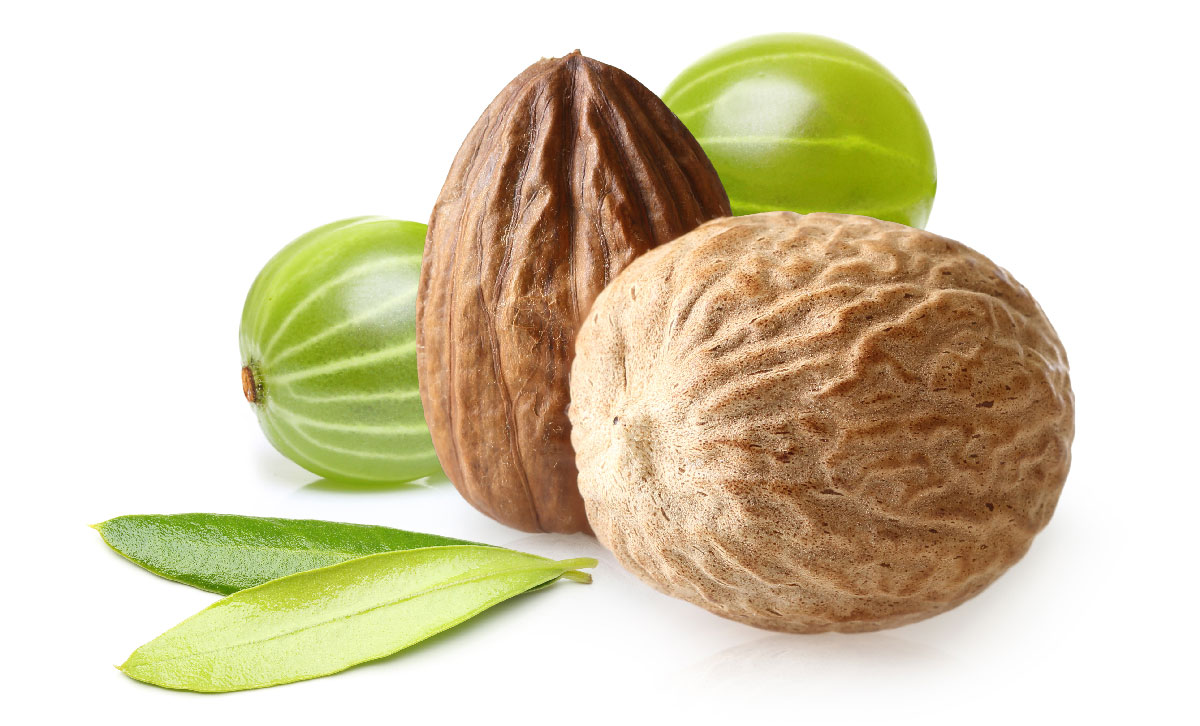Triphala’s Benefits and Consumption Precautions

In traditional Indian medicine, Triphala is a widely used herbal formulation composed of the dried fruits of three plants: Amla (Emblica officinalis), Bibhitaki (Terminalia bellerica), and Haritaki (Terminalia chebula). Known for its diverse health benefits, Triphala has gained increasing attention in modern science. This article explores the key benefits, methods of consumption, precautions, and its effects on the digestive system, antioxidant properties, cardiovascular health, as well as its contraindications and potential side effects.
Key Benefits of Triphala
Triphala offers multiple health benefits due to its rich content of polyphenols, vitamins, and minerals. Studies suggest it can improve digestion, boost immunity, reduce inflammation, and even provide protective effects against certain cancers. Amla, one of the main components, is high in vitamin C and antioxidants, which help reduce damage caused by free radicals, essential for preventing chronic diseases and anti-aging. Bibhitaki and Haritaki, on the other hand, promote digestion and detoxification, helping to cleanse the intestines and improve overall health.
Recently, a Taiwanese biotech company introduced a supplement called “Herbtail GlucoMetabol” (aka Three-Highs Metabolic Treasure). One of its key ingredients is Triphala, combined with other natural elements, offering a safe and effective option for people with high blood sugar, high cholesterol, high triglycerides, and hypertension.
Consumption Methods and Precautions for Triphala
Triphala can be consumed in various forms, commonly as a powder mixed with water or milk. It is recommended to take it on an empty stomach in the morning to aid in cleansing the intestines and promoting metabolism. However, excessive intake may cause diarrhea or gastrointestinal discomfort, so it is advisable to follow the recommended dosage of 5 to 10 grams daily. Pregnant or breastfeeding women should use it under medical supervision.
Digestive Health Benefits of Triphala
Triphala is widely regarded as a natural solution for improving digestive health. Its natural fiber and antioxidants help promote bowel movements and reduce constipation. Additionally, the ingredients in Triphala can reduce inflammation in the intestines, making it beneficial for those with irritable bowel syndrome (IBS).
Antioxidant Properties of Triphala
Triphala is rich in polyphenolic compounds, with Amla’s antioxidant power being particularly notable. It helps combat free radicals, slow down aging, and protect cells from damage. Studies also indicate that Triphala’s antioxidant properties positively affect cardiovascular health by reducing levels of bad cholesterol (LDL) and preventing atherosclerosis.
Triphala’s Role in Cardiovascular Health
Triphala has potential benefits in lowering cholesterol and improving blood circulation. Clinical trials have shown that regular consumption of Triphala can significantly reduce total cholesterol and triglyceride levels, thereby improving cardiovascular function.
Contraindications and Potential Side Effects of Triphala
Although Triphala is a safe natural supplement, individuals with severe diarrhea or intestinal conditions should avoid it to prevent worsening symptoms. Some people may have allergic reactions to the ingredients in Triphala, so it is advisable to perform an allergy test before use. Overconsumption may lead to abdominal pain or gastrointestinal discomfort, so it is essential to follow the recommended dosage and consult a healthcare professional if necessary.
